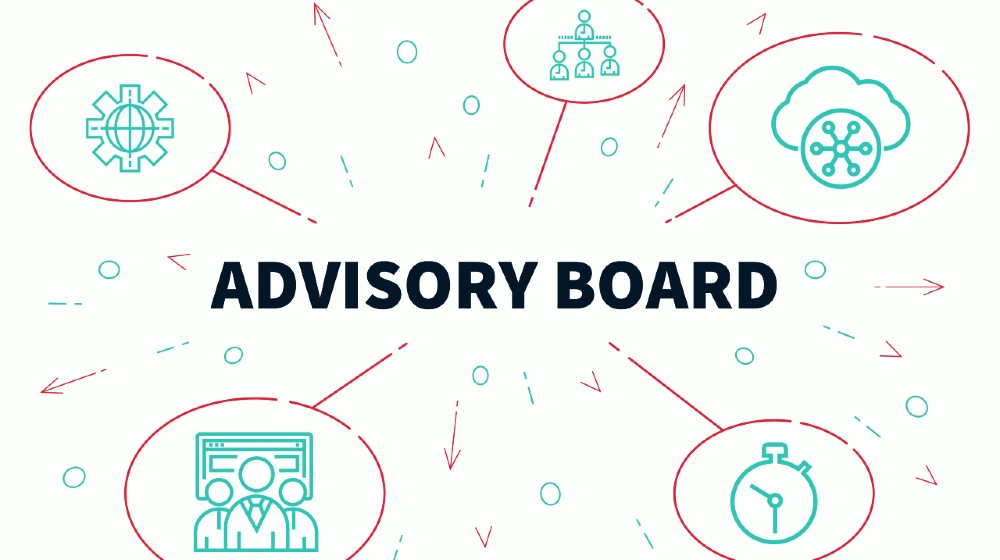Volatility has established a new norm in this country. We can pinpoint when it started and the reasons for it, but we can neither control it nor predict its demise.
The only other alternative is to respond to it more aggressively with more structure and better ideas. That means CEOs need better, more immediate advice to the problems they have always faced and the new ones that have reared their ugly heads. Advisory boards provide armament in this newly-defined conflict.
RELATED: CEO Frustration #4 – Have I Hit the Ceiling As a CEO?
Five Reasons CEOs Need Advisory Boards
Advisory boards exist for the sole purpose of advising the CEO. They differ from boards of directors and family councils because they do not vote, nor do they have fiduciary obligations.
Sometimes advisory boards co-exist with a board of directors or a family council, but more often, owners or CEOs create them when neither of the other kinds exists.
Advisory boards can be general in scope or targeted to specific markets, industries, or issues such as adopting new technology or going global. Advisory boards offer numerous other benefits to the CEO. Here are five:
1. CEOs seldom receive unbiased information, and they don't always spot a bias when they see one. Conventional wisdom advises: “Don't ask the barber if you need a haircut,” yet the organizational equivalent to a cast of barbers populates every organization. No CEO can be certain he or she will receive impartial information from those who have a stake in the outcome of the decision.
In addition to offering prejudicial opinions, members of the organization tend to “filter” information that reaches the top. Like the king's taters of medieval times, those in the CEO's chain of command too often sort out what information should go forward and what should stall.
CEOs need unfettered access to all relevant information. Sometimes an advisory board can offer more information; at other times they will recognize that the CEO doesn't have all the data that he or she should have received from those in the organization.
2. Those in the organization rely on CEOs to make final and important decisions, yet CEOs have so few sources of advice and wisdom. Advisory boards can provide timely knowledge about trends and the competition.
They also might be able to identify upcoming political, legislative, and regulatory developments that will influence the organization.
When struggling with a complex decision, reliable information and strong analysis of the data work in tandem. One creates the voice; the other the echo.
Without the presence of a trusted advisor, the voice lies fallow. This can cause the CEOs to hesitate in moving ideas to action, to second guess decisions, or to limit the number of creative solutions, especially when facing unfamiliar problems.
Advisory boards offer an alternative. If the CEO has chosen members of the advisory board time wisely, they will create a sounding board of highly skilled, knowledgeable colleagues who can help the CEO get to the core of the issue, keep the focus on strategy, and zero in on the critical few while putting aside the trivial many.
When advisors play devil's advocate, they can force the CEO to look at a number of scenarios-a practice that will identify worst cases and best practices.
CEOs who try to brainstorm with their executive teams often meet resistance and fear because the members of the team worry about every far-fetched idea that the CEO entertains. With advisors, the CEO can truly explore possibilities without causing undue angst.
3. It's lonely at the top. CEOs are the final arbiters of important decisions, yet they have few confidantes with whom they can share their self-doubts. Advisors can help CEOs look at operations with an open mind and consider new insights about product development and marketing issues.
Organizations like the Young Presidents' Organization and CEO roundtables have cropped up all over the nation, but they offer something different.
These groups provide the platform for CEOs to discuss their business challenges and opportunities, but they don't go far enough. While members often develop strong allegiance to each other, they don't usually devote the time and attention required to fully understand a particular business.
Advisory boards do better. They typically meet each quarter for a day or half a day to discuss issues in depth. This gives members a chance to review the information and dig deeper for understanding. A YPO or roundtable simply doesn't allow for that kind of time commitment or close analysis.
4. Most CEOs think of the intellectual stimulation and the business acumen they will experience when they begin to consider forming an advisory board. But my CEO clients tell me no one should overlook the emotional support advisors provide. Sometimes CEOs need help making a difficult decision; at other times they require help in processing the emotions engendered by the tough call, but those in the CEO's chain of command often can't help.
People in the organization get nervous when the CEO expresses an emotion or doubt. They crave dispassionate, self-assured leadership, not emotional reactions.
CEOs have no peers within the organization, so there's no one to confide in. Their peers outside the organization frequently don't understand their issues.
Certainly, as a CEO coach, much of my job description addresses giving emotional support, but sometimes it's not enough. Sometimes CEOs need to hear from others who have stood in their shoes in a similar situation.
They need to feel that someone truly understands the pressure they feel, the emotional drain, and the isolation. Spouses too can lend an empathic ear, but only leaders who have held the helm know the fear and danger of steering the ship in turbulent seas.
CEOs need to hear ideas about navigating the troubled waters, but they also need to feel empathy and understanding from those who can give it with genuine knowledge of how the upsetting emotions feel.
5. Finally, boards of advisors open additional avenues for the CEO. Often advisors can create liaisons with those inside and outside the industry the CEO should know.
We are all in the relationship business, no matter which industry we represent. People prefer to do business with those they trust or with people who come to them by way of a personal introduction.
Referrals are the coinage of business realms. They beat advertising, marketing, and networking. When CEOs invite advisors to help them build their businesses, they open the door to endless possibilities for future work and build liaisons that help them into perpetuity.
Economists and politicians continue to debate the reasons for the volatile economy and the merits of the proposed solutions, but everyone agrees on one thing: the future remains unpredictable, and this current situation may last a while.
Conventional approaches won't be enough. Smart CEOs know what got them here won't be enough to get them where they want to go. They will need more. Advisory boards offer one additional avenue for receiving what the smart CEO needs.
















